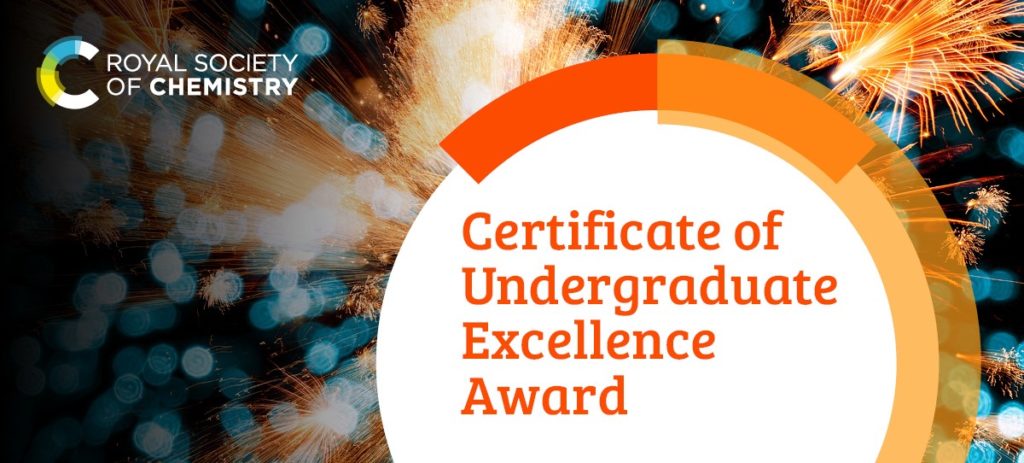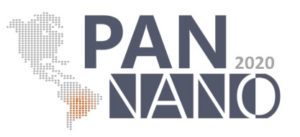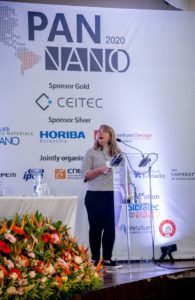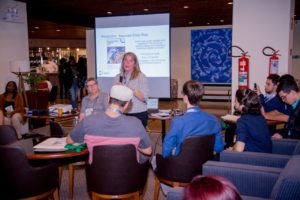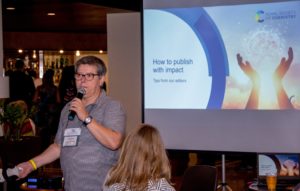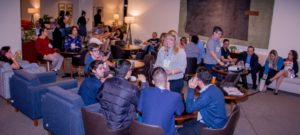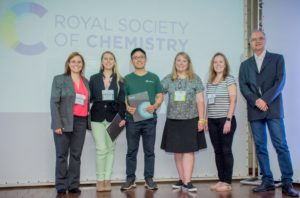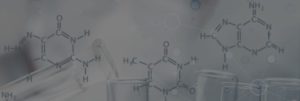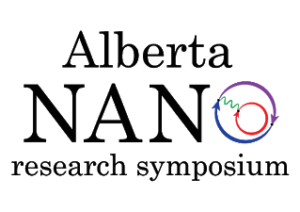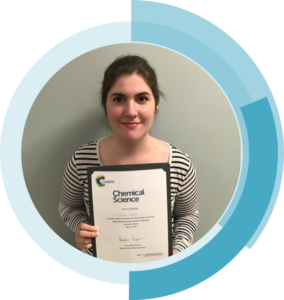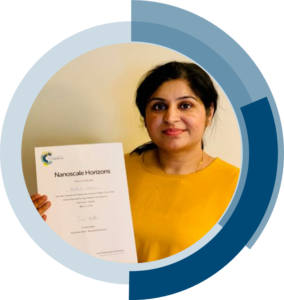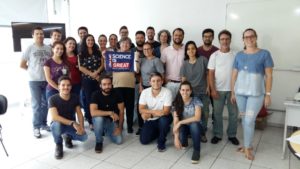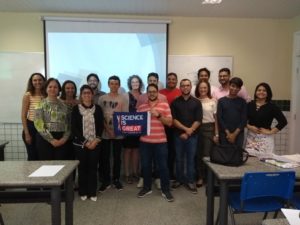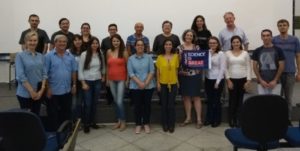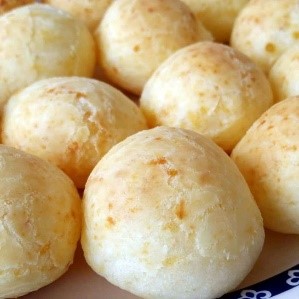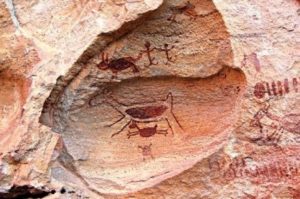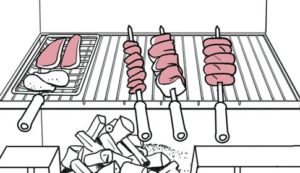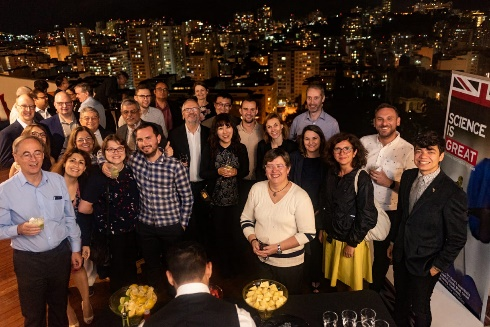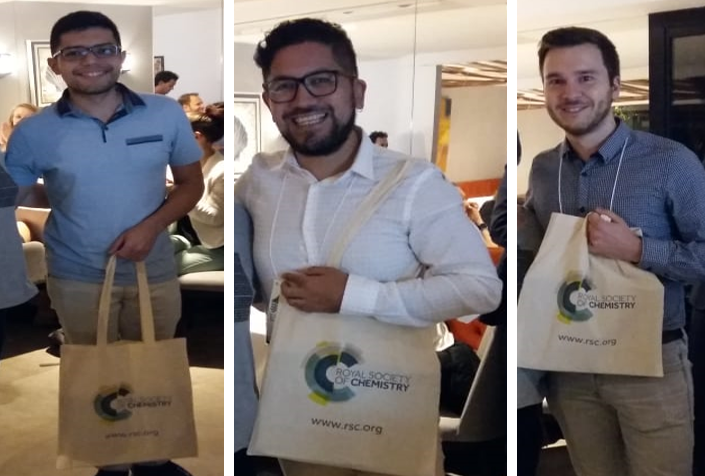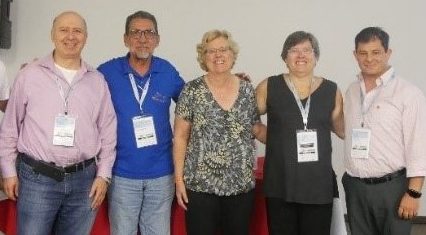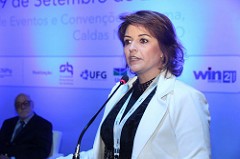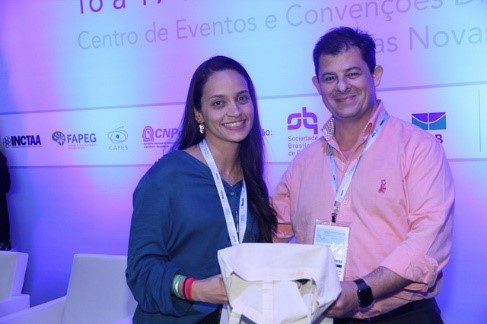We introduced the Certificate of Excellence in 2017 and continued it in 2018 as a way for institutions to recognize students who have shown outstanding achievement in the chemical sciences; this year we want to showcase one of the recipients who embodies the spirit of the award and who inspires those around her to pursue their dreams while making a difference not only in their own communities but also those around the world. We are pleased to introduce you to Caroline Alice Rouget-Virbel, who will be starting her graduate studies at the University of California, Berkeley this fall.
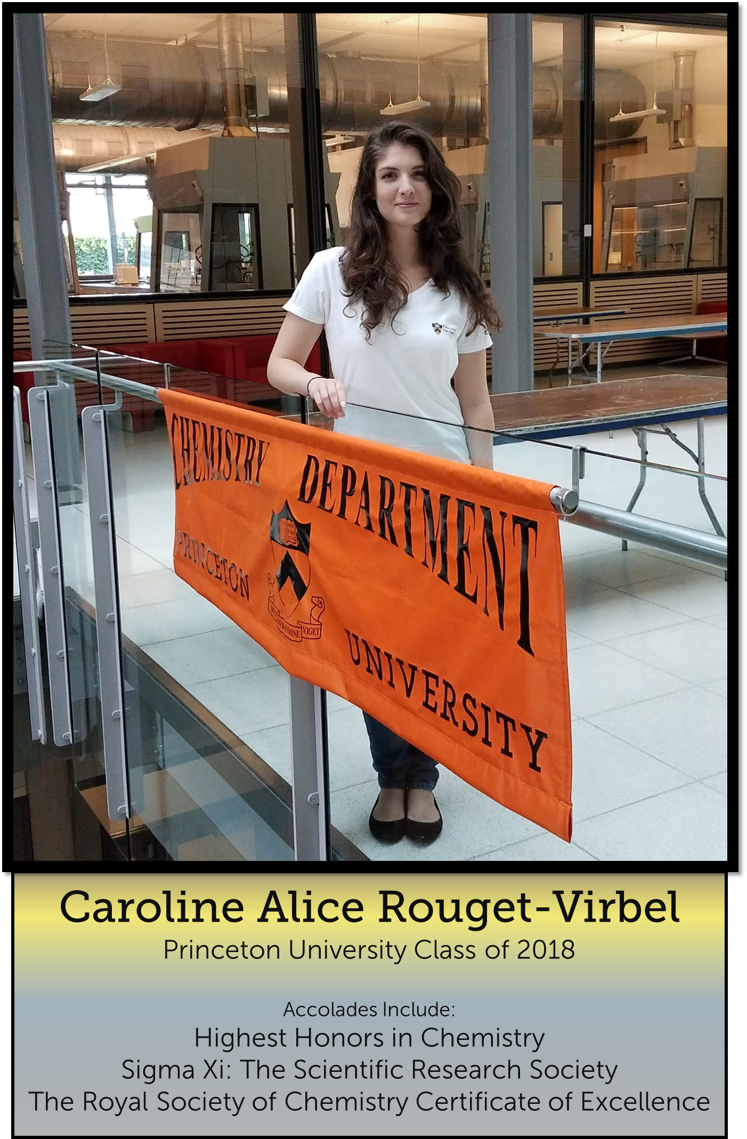
At Princeton’s Class Day ceremony for Chemistry seniors in the Class of 2018, Caroline was recognized for her academic performance and her contributions to the department. She earned Highest Honors in Chemistry, was elected to Sigma Xi: The Scientific Research Society, and was awarded The Royal Society of Chemistry’s Certificate of Excellence. But Caroline was not the typical Princeton University undergraduate. She grew up in Pélissanne, a small town in the south of France, in what most would describe as a rural area. She attended a public school and then applied to an international boarding school, Ecole Internationale de Manosque (EIM) in the French Alps, for her high school education. There she obtained a British OIB (International Optional Baccalaureate) diploma, a joint educational degree between the French Department of Education and the University of Cambridge.
While in high school, Caroline developed interests in both science and foreign languages, which in turn got her excited about applying to foreign universities in the U.S. and England. To put this in context, Caroline grew up in a comprehensively working class environment and it was not typical and expected in her family to apply to college. To then take the step of applying outside of France for higher education was quite remarkable. She took a major leap of faith and applied to Princeton University. When she was offered admission along with a generous grant for financial aid, she simply could not turn down the opportunity. Needless to say, her acceptance of Princeton’s offer not only provided a highly constructive four-year experience for Caroline, but her contributions to the department and to the campus as a whole proved to be a plus for the University community.
During her first week on the Princeton campus, Caroline quickly identified a way to produce a steady income. Always determined to pay her own bills and add to her personal savings as much as possible, she held down a paid position as a Dining Services Student Manager, training new incoming workers and overseeing meal services for her dining hall and for special catered events. In fact, she continued to hold that job during all four years at Princeton. The summer after freshman year, she added another country to her growing list of travel experiences by serving as a volunteer at the Mahatma Gandhi Orphanage in Jaipur, India. While there, she assisted with childcare, global health initiatives, and infectious disease prevention efforts. And, of course, she explored the area and soaked in the culture.
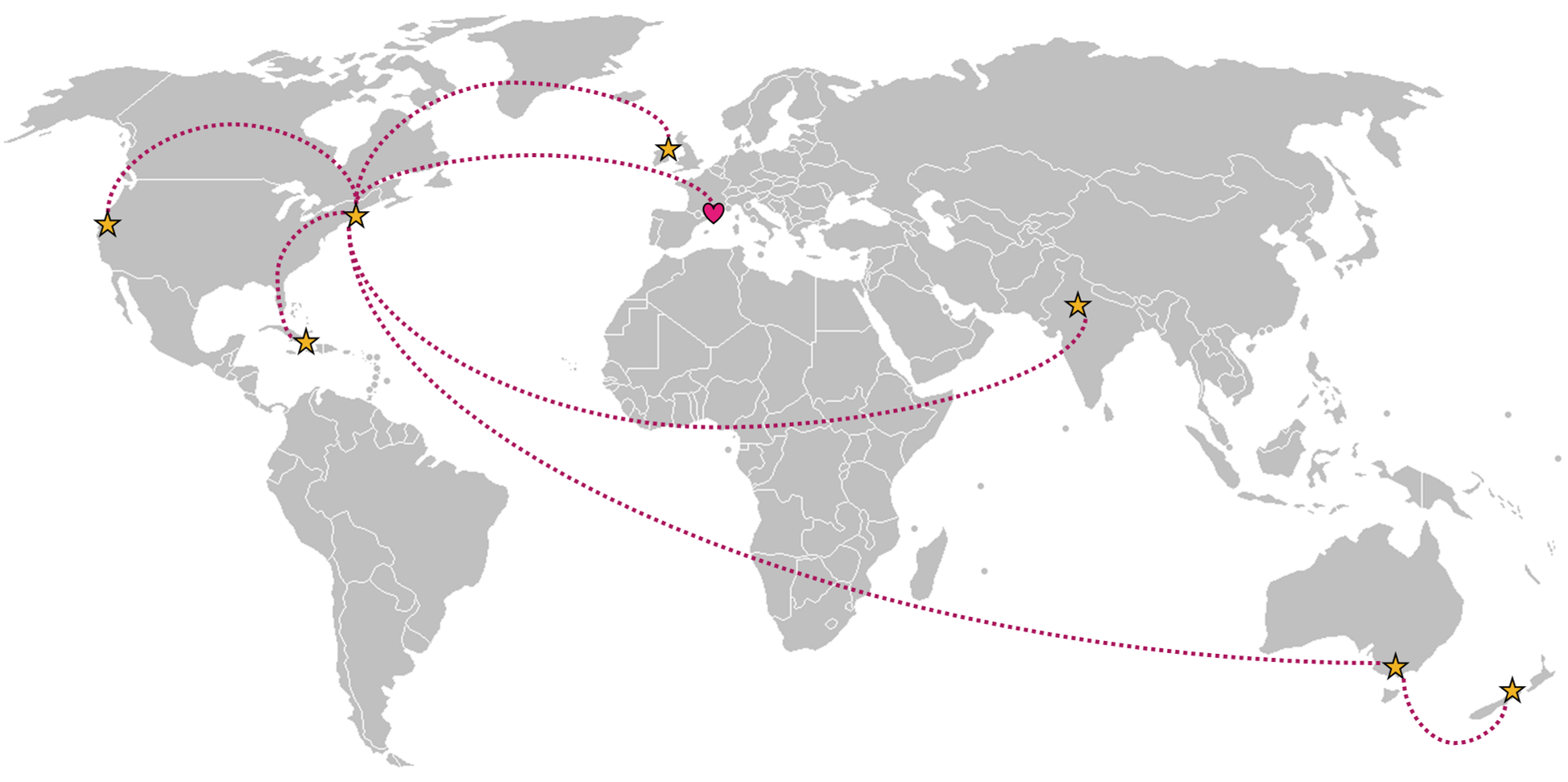
Caroline hails from Pélissanne, a small town in rural France and is the first person in her family to apply for college, but by following her passion for science, foreign language, and community service, she has managed to expand her horizons and travel the globe.
During Caroline’s freshman and sophomore years, she began work with the campus mental health initiative. In addition, knowing how it felt to be an international student, she became involved with the University’s David International Center, taking on the responsibility of planning and leading events for incoming undergraduate and graduate students, as well as year-long community-building activities. This particular type of involvement helped not only others adjust, but also helped her as she took steps to find her place within the University, so much so that she continued to contribute to this program until she graduated. During the spring of her sophomore year, Caroline gathered information about the various science departments at the University and, after much deliberation, elected to major in chemistry. With that plan in place, she lost no time laying out her “What Next?” The summer of 2016 offered her yet another opportunity to live abroad. Caroline traveled to Dublin, Ireland, to pursue research at the National Children’s Research Center. She studied the underlying patho-mechanisms of the dysregulation of the NOX-1 and -4 genes in Hirschsprung’s-Associated Enterocolitis. Her work gave her the opportunity to add skills in protein expression and PCR analysis, gel electrophoresis, and immunofluorescence microscopy to her research “toolbox.”
As a first semester junior, Caroline decided to join a research lab a full term earlier than her peers. That plan led to a round of investigations to identify a lab that would be the right fit with her interests and her style of learning. By the second month of the term, she was hard at work in the lab of Professor David W. MacMillan, the James S. McDonnell Distinguished University Professor of Chemistry. While 12 to 14 hours of original research per week is the expectation for young chemists, Caroline spent as much time on her project as the demands of her coursework and extracurricular commitments permitted. That dedication spoke volumes since the junior year for chemistry majors is extremely demanding with regard to reading assignments, papers to write, problem sets to complete, discussion groups to attend, and the time commitment need to complete the required experimental laboratory course. She also took on the role of undergraduate preceptor in our newly restructured organic chemistry sequence. Preceptors assist instructors of auxiliary class sessions that work on learning material and practicing skills outside of the lecture period. Caroline was one of the preceptors instrumental in developing and running review sessions prior to exams. She also spent many hours tutoring students one-on-one, providing not only academic guidance, but also a “Can Do” attitude for her students who were concerned about doing well in mastering a difficult subject.
During that same period, Caroline elected to plan for a semester of study abroad with the goal of completing her Spring 2017 term in Australia. The opportunity to explore another country and live in yet another culture proved irresistible. Within no time at all, plans were put in place for her to study at the University of Melbourne. Adjusting to a program with courses that involved no periodic evaluation until the final exam, blending into a different culture, completing an original research project in a new chemistry laboratory, and pursuing opportunities to explore Australia formed the perfect combination for this intellectually curious student. And, as luck would have it, her sister was pursuing a program in Southeast Asia, so they were able to meet up and travel together, exploring the beautiful landscape of New Zealand, spending two full weeks road-tripping and camping around the South island. Caroline’s world was expanding rapidly from the rural area of France into a global viewpoint.
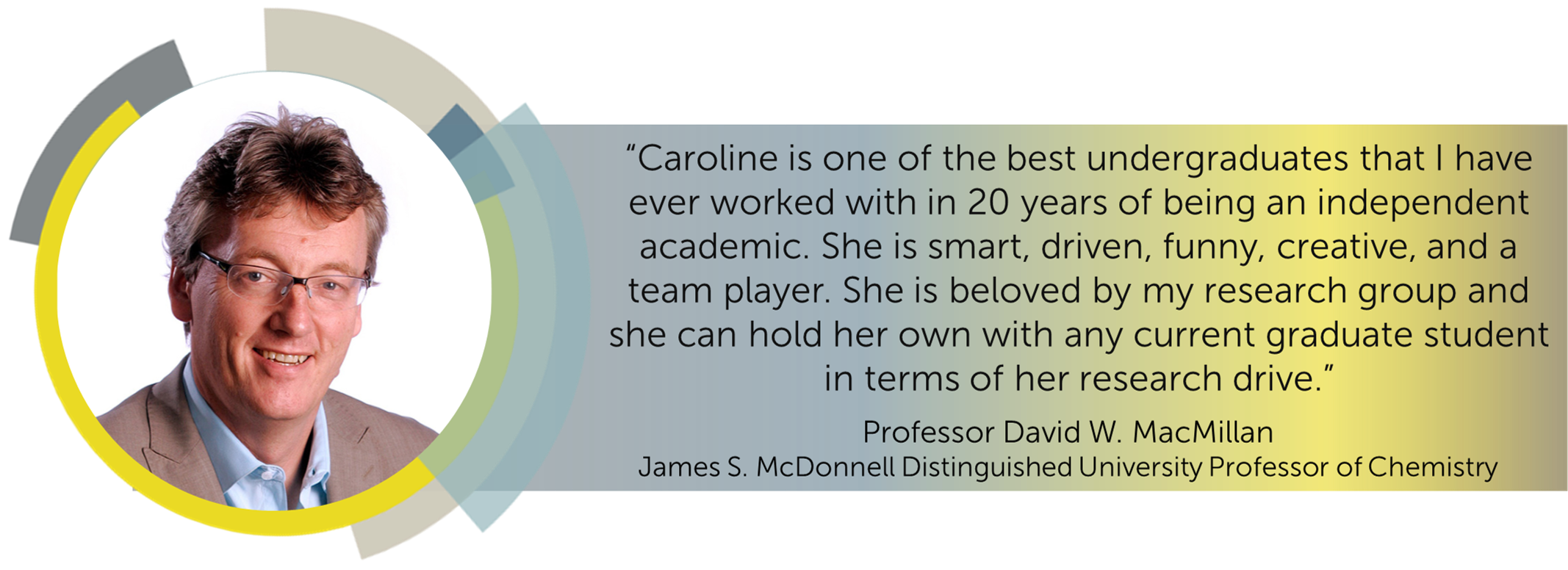
The summer prior to the start of her senior year was spent on the Princeton campus in order to focus on her senior thesis research. During those months, she was the senior class catalyst, bringing all of the summer researchers together for meals and other activities to create a sense of community. In her senior year, the craving for travel led her to plan a trip to the Caribbean for yet another cultural experience, which she hopes will be her next voyage into unfamiliar lands. In September of senior year, Caroline was off and running, returning to her role as a preceptor and tutor for undergraduate organic chemistry courses. Her dedication has yet to be matched. She developed a reputation for patience and careful instruction. As side projects, she designed a senior class t-shirt that included a structure from each of the senior chemistry theses and organized various get-togethers for her classmates. She also served as a Peer Academic Advisor, shepherding first and second year undergraduates as they settled into University life. All the while, Caroline was tackling her own demanding academic schedule, which included graduate level coursework, and was spending innumerable hours on her laboratory research project. The culmination of Caroline’s research was the submission of her senior thesis entitled “Application of Dual Nickel-Photoredox Catalysis to the Synthesis of Unnatural Amino Acids.”
To quote her faculty mentor, Professor MacMillan, “Caroline is one of the best undergraduates that I have ever worked with in 20 years of being an independent academic. She is smart, driven, funny, creative, and a team player. She is beloved by my research group and she can hold her own with any current graduate student in terms of her research drive.” Caroline has been accepted into the chemistry PhD program at the University of California, Berkeley. We have no doubts whatsoever that Caroline will continue to be an outstanding student and researcher as she works towards her graduate degree.
Special thank you to Kirsten M. Arentzen, Undergraduate Administrator for the Department of Chemistry at Princeton University, for contributing the majority of the content for this article, for continuously supporting the student body, and encouraging the recognition of outstanding undergraduates.












